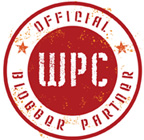Living Well with Parkinsons Disease
Dancing in the Rain: Lessons Learned on my Personal Journey with PD (more at www.PDPlan4Life.com) Copyright 2013-20 Sheryl Jedlinski
Saving my teeth

By Sheryl Jedlinski
I have never been a relaxed dental patient. My gag reflex is easily triggered, and I am extremely claustrophobic, necessitating my dentist get his hands and his tools in and out of my mouth as quickly as possible.
I imagine the dental hygienists drawing straws before my arrival to determine who gets the “privilege” of taking my x-rays and cleaning my teeth, a particularly arduous task seeing as how I have never been much of a flosser.
My most recent dental check-up was my worst yet. It revealed the need for eight fillings and two crowns, triggering the return of my childhood nightmares focused on my teeth falling out of my mouth in clumps for no apparent reason. “Six months ago your x-rays revealed little if any decay, and now there is barely enough healthy enamel to fill,” my dentist told me. “The side effects of your Parkinson’s disease and cancer medications are taking a heavy toll on your oral health.”
I am grateful that I heeded my dentist’s advice and had old fillings and crowns replaced during the early stages of my Parkinson’s disease when dental visits were easier on me.
Currently, dry mouth is most bothersome for me as it leads to poor saliva flow. This makes it difficult to wash food debris away from teeth and gums, thus speeding up the rate of tooth decay and gum disease. Using a non-alcohol-based mouth rinse helps soothe irritated tissue. Using prescription grade topical fluoride toothpaste helps neutralize the acidity levels in my mouth and thus decreases the risk of cavities caused by these bad bacteria.
Saliva plays an important role in ubricating our food to help us swallow. It is also antibacterial and has enzymes to help us eat and digest food. To best manage dry mouth. symptoms, I take frequent sips of water to keep my mouth hydrated, chew sugar-free gum, and use lip salve. Saliva substitutes also are available should they be needed.
Strategic scheduling of appointments can make the dental experience go smoother. This includes:
- Having more frequent check-ups and cleanings to catch and fill cavities when they are small.
- Booking appointments at the time of day medications tend to have optimal effects.
- Scheduling a series of brief visits rather than one longer one to have more extensive dental work done.
Finally, if your dental anxiety is still out of control, try the many coping techniques to find one that works for you. I do well taking a single dose, prescription oral anxiety relieving medication just prior to my visit. Then I put on my noise cancelling headphones that block out the sound of the drill and listen to songs of peace and protest. My dentist wishes I had discovered this approach long ago.




Oh my gosh, another battle for you…I’m so sorry to hear this. Love you, Sharie F.